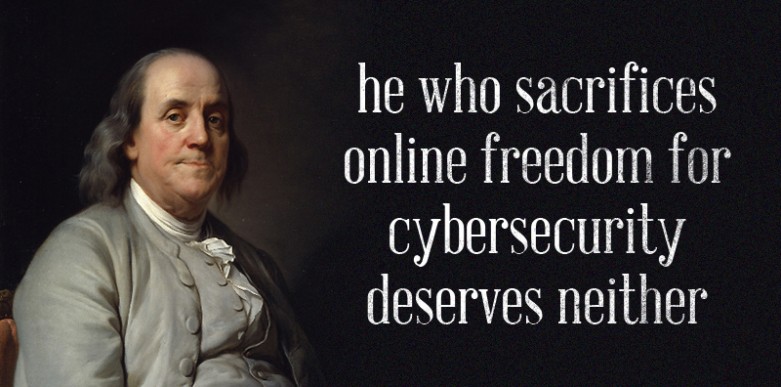
Senators Work to Protect Online Rights in Cybersecurity Bill
UPDATE, Aug. 3, 2012: Thanks in large part to an all-hands-on-deck effort from civil liberties and privacy activists and advocacy groups, the Senate voted Thursday to stop the Cybersecurity Act of 2012 from moving forward. As our friends at the Electronic Frontier Foundation put it, "this is a victory for Internet freedom advocates everywhere."
That's because this bill still wasn't good enough — even though we changed the conversation around it and worked to get rid of its most harmful pieces. A group of senators — led by Sens. Al Franken and Rand Paul — inserted key privacy protections and proposed an amendment that would have prevented increased spying and blocking of our communications. However, these improvements were under attack from sponsors of rival bills, with no guarantee of a good result in the final vote.
Congress' cybersecurity debate is far from over. But the next time another bill pops up, a strong coalition of digital rights advocates will be right there to protect your online privacy.
July 27, 2012: Remember CISPA, the dangerous cybersecurity bill that passed the House of Representatives earlier this year? If signed into law, that bill could usher in a new regime of online spying — courtesy of federal agencies like the National Security Agency, with the possible participation of search engines like Google and sites like Facebook.
After CISPA passed the House in April, the fight moved to the Senate. This week a new compromise bill — the Cybersecurity Act of 2012 (S. 3414) — was introduced on the Senate floor.
An earlier version of this bill contained serious flaws that would have allowed the federal government and private companies to spy on us online in new and frightening ways.
To address this problem, a group of senators led by Sen. Al Franken added a series of privacy protections that, in the words of our friends at the Electronic Frontier Foundation, took “a step in the right direction of protecting online rights.”
However, the bill still contains a section that would give companies the right to monitor our private communications and share them with government agencies. To address this, Sen. Franken and Sen. Rand Paul have introduced an amendment that would strike this problematic section.
The combination of this updated bill and the Franken/Paul amendment make the Cybersecurity Act of 2012 much better than it could have been, as they address many of our concerns about the need to protect civil liberties.
We commend the senators for their efforts to improve this bill. We’re still not advocating for this bill — cybersecurity experts are still split over its ramifications — but if it does pass the Senate it simply has to contain these good changes and amendments that protect your civil rights and privacy.